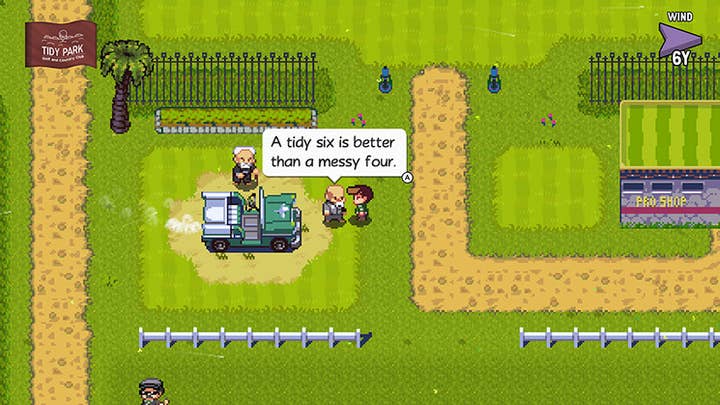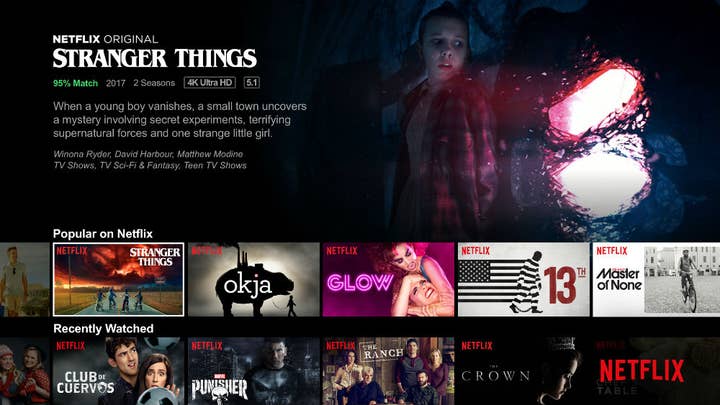Why Nintendo Switch needs to find a new model of discovery
The family-friendly platform must learn from Steam's cautionary tale
There are almost 500 games available on Nintendo Switch. That's fewer games than are available for most other major platforms, but it's already enough that the Nintendo eshop has become a terrible way to find new games to play.
That's one problem. Another is that the most common method of fixing discoverability on digital storefronts feels like a bad fit for Nintendo.
The Nintendo eshop currently lets you browse via lists of recently released games, games currently topping the sales chart, and games currently available for a discounted price. That's it. Unlike most rival platforms, there is no curated homepage pushing acclaimed games, and no algorithm behind the scenes recommending games to you based on what you play.
"An ecosystem in which good games are able to find an audience, and continue to find an audience, benefits everyone"
This is a problem. The Switch has rapidly become the go-to platform for many indie games, but how long will that remain the case if each game is destined to become quickly buried in the expanding back catalogue. When we spoke to developers about the inevitable end of Nintendo Switch's indie game gold rush, improved discovery features were mentioned repeatedly as a necessity if the platform is to continue in good health.
To give an example of one of the problems, look at Golf Story - or try, anyway. Sidebar Games' golf RPG was critically acclaimed and heralded as a success upon its release in September 2017. However, as it's not currently discounted and it's no longer a best seller, the eshop will never show it to you. You're only likely to find it in the store if you already know it exists and search for it specifically.
It's tempting to pass responsibility for this onto the makers of games. We don't expect supermarkets to by default make a lot of noise about every new cereal. If developers want their games to sell, they can market it anywhere they please, right?
This is shortsighted. Even if every indie developer had the resources to market their games, they couldn't do it in perpetuity. An ecosystem in which good games are able to find an audience, and continue to find an audience, benefits everyone. Good discovery features encourage the creation of more good work, they encourage more developers to bring their games to Switch, and most importantly, they help gamers find things they actually want to play.

The Nintendo eshop is not the first digital storefront to face this problem, of course. When Steam first launched, it was home only to games made by Valve. In 2017, 7,672 games were released on the PC digital storefront. That averages out to 21 games released every day. Steam relies on an algorithm to surface those games to users who might be interested in them, based on data from people's playing habits plus user reviews, tags and recommendations.
Yet it's a model that would be a terrible fit for the Nintendo eshop.
"Steam's model would be a terrible fit for the Nintendo eshop"
That's in part because of the toxicity it helps breed. Steam user reviews, for example, are susceptible to being 'bombed' by users who dislike a particular developer, and the language used in them is frequently foul and abusive. That wouldn't work on a platform that's designed to be used by everyone in the family, kids included.
This is true of almost every feature Valve have introduced to Steam. Valve added the ability for anyone to describe games via tags, and people used those tags as an opportunity to criticise games they didn't like and leave slurs on store pages. Valve added the ability for anyone to curate a list of recommended games, and people used those lists to 'warn' others of games with social values they disagreed with or which failed to meet some arbitrary technical criteria. The list goes on.
The problems with Steam's unmoderated community have been well documented previously. Yet even if you were to moderate such a community, these systems still feel like a bad fit for the Switch.
Nintendo is beloved in part because of the values the company espouses. Nintendo is careful to express those values in everything it does, from the design of the systems it makes, to its own games, as well as the developers it chooses to work with. It's notable that Nintendo refers to the indie developers it works with as "Nindies". They are Nintendo approved. The company has opened its latest platform up to developers in a way it has never done before, but it still isn't letting just anything release via the eshop in the way that Valve does with Steam. Nor should it.
So it seems unlikely that the implicit Nintendo seal of quality will be placed upon a system of user reviews and comments. Even with moderation, to hand the users control of curation would be to cede control over what values the Switch expresses as a platform.
"If Steam is a poor model to follow, the question is what discovery model the Switch could use instead"
If Steam is a poor model to follow, the question is what discovery model the Switch could use instead.
To swing entirely the other way, Nintendo could hire a curation team to manage a homepage of recommended games, but this isn't exactly desirable either. Hopefully the Switch's catalogue of games continues to grow for years to come, and Valve is right that curation by company staff doesn't scale well. You're either failing to highlight certain games, or you're failing to reflect the breadth of tastes of people visiting the page.
My preferred solution is one taken from outside of videogames. Like Steam, the film and television streaming service Netflix lets users rate what they watch - but a rating is all it is, without any review. The company then uses that data, along with a lot more about your watch habits, to work out what shows and categories to show you on the frontpage when you login.

Unlike Steam, those categories are determined by Netflix, which means Netflix is still in control of what values those categories communicate.
It also allows content to be grouped in interesting ways. For example, Netflix might show you a category of television featuring "sharp humour", and in it highlight a range of programmes from superhero drama Jessica Jones to '90s sitcom Friends. I could imagine Nintendo using something similar in its own playful way.
Netflix's recommendations are still ultimately a system underpinned by a data-driven algorithm, and that's why it works with the estimated 13,000 titles that the library contains at any one time. What might make it work for Nintendo is that it has a touch of humanity about it, without the need for a massive amount of moderation.
Alternatively there is another option that I prefer even more: Nintendo could come up with its own system entirely. I'm not clever enough to predict what that new system might be, but Nintendo's success has always come from its ability to find new, more playful ways of doing things. What's most clear is that it needs to bring that same philosophy to the eshop and the very real problem of discoverability.
Most importantly, with the right system in place, the eshop might eventually learn that I don't care about the infinite number of NEOGEO re-releases.
